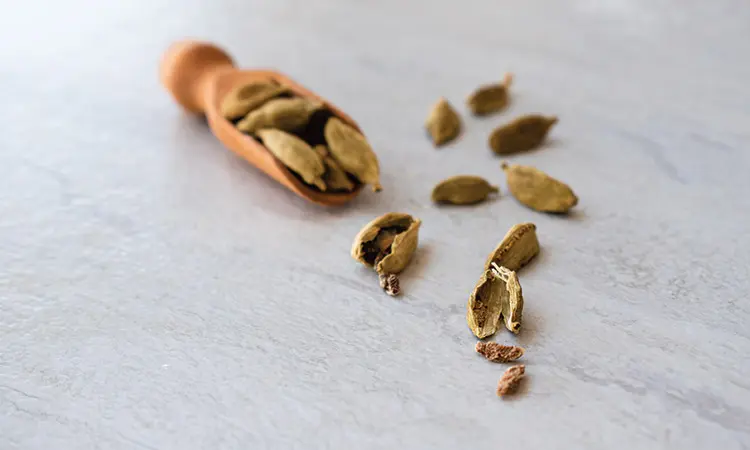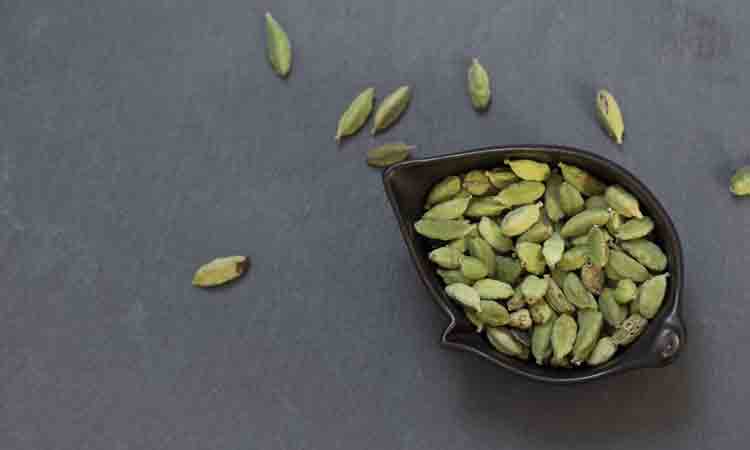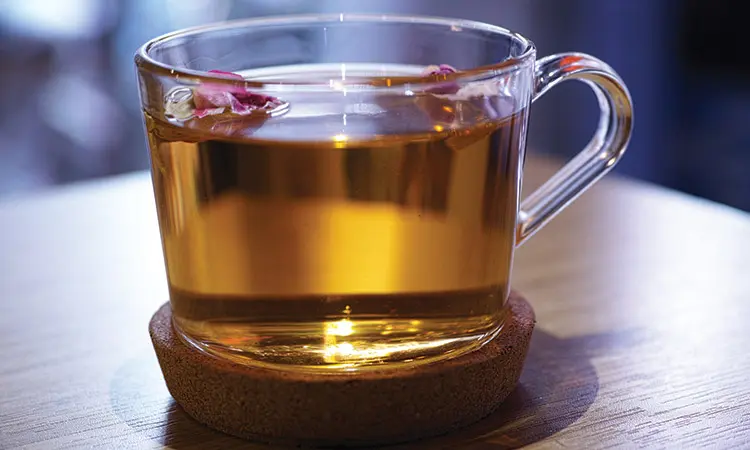Cardamom is an aromatic spice that is used to enhance the flavor of desserts, curries, tea, soups, rice dishes like pulao and biryani. It is used as in whole or in grounded form. Cardamom has many health benefits as well. However, cardamom during pregnancy-is it safe? Well, pregnancy does make you question the safety of almost everything you consume, isn’t it so?
Cardamom is a multi-purpose spice. Not only it is used in cooking, but it is also used in the manufacture of soaps, perfumes, toothpaste, etc. So where does it stand in your pregnancy diet?
Although spices are nature’s gift, all spices are not safe during pregnancy. Some spices contain strong components that can adversely affect the normal progression of pregnancy. Even spices that are considered safe during pregnancy should be consumed in moderate quantities only.

Types Of Cardamom
There are two major types of cardamoms – green cardamoms and black cardamoms. Green cardamom is more prevalent in South Indian cuisine. Black cardamom on the other hand is an important ingredient in North Indian cuisine.
Green cardamom is small pale green cardamom with a delicate aroma. It is the commonest type and counted as true cardamom. It is used both in desserts and curries. It is used in almost all milk-based recipes that require cardamom.
Black cardamom, on the other hand, is big (approximately 3 fold the size of green cardamom), black colored cardamom with a strong and smoky smell. This property makes it the main ingredient in garam masala.
It is not used in making desserts and milk-based dishes. Instead, it is more often used in curries and savoury dishes such as biryanis. Medicinal value for black cardamom is also well known. But when it comes to advantages, both are equally beneficial.
Is Cardamom Safe During Pregnancy?
Both green and black cardamom are and used by ayurvedic and Unani practitioners for centuries. The green cardamom is a spice that you can safely have during pregnancy. So far no risk for pregnancy is found associated with using cardamom in cooking. Black cardamom is also safe during pregnancy.
Calculate Due Date With LMP
However, only moderate consumption is encouraged during pregnancy. Intake of green cardamom during pregnancy first trimester as a medicine is not safe. In concentrated form, cardamom can bring about bleeding. This can cause miscarriage in early pregnancy.
Health Benefits Of Cardamom During Pregnancy
Antimicrobial, antioxidant, anti-inflammatory, anti-carcinogenic properties of cardamom offer many health benefits during pregnancy. Here are some health benefits of the intake of cardamom during pregnancy.
1. Helps to combat morning sickness

Cardamom is an excellent spice to beat pregnancy nausea. Cardamom, similar to ginger, helps to relieve morning sickness. Mixing some ginger juice, cardamom powder, and honey, and having with a dash of lime is said to do wonders for nausea.
2. Helps fight mood swings
According to the Times of India, the aromatic power of cardamom helps to alleviate stress and depression. This is very relevant when it comes to mood swings during pregnancy. adding some cardamom water to your morning tea may do wonders.
3. Helps to fight asthma
It is found that cardamom can alleviate the annoying symptoms of asthma, like shortness of breath, wheezing, tightness in the chest, and coughing. Cardamom improves the blood circulation inside the lungs.
Increased blood flow improves breathing. The anti-inflammatory property of cardamom also helps to alleviate the inflammation of the mucus membrane. This also will help to relieve asthmatic symptoms.
4. Cardamom helps in diabetes
Studies show that cardamom helps to regulate sugar metabolism. Cardamom is extremely rich in manganese. Manganese is a mineral that can potentially lower the risk of diabetes. Maintaining blood sugar level is very important during pregnancy.
5. Relieves acidity

Cardamom comes from the ginger family. Certain essential oils in cardamom help to strengthen the mucosal lining of the stomach. Moreover, it is alkaline in nature. Cardamom stimulates the production of saliva. All these qualities of cardamom help to alleviate acidity during pregnancy.
6. Improves oral health
Cineole is a major component of cardamom. This component has strong antimicrobial properties. The antimicrobial property of cardamom helps to kill the germs in the mouth. Cardamom is, therefore, beneficial for oral health. Chewing a couple of cardamom seeds helps to keep bad breath at bay.
7. Regulate blood pressure
Studies show that regular intake of a small quantity of cardamom is highly beneficial in bringing down high blood pressure. During pregnancy, it is very important to regulate blood pressure.
What Are The Side Effects Of Eating Cardamom During Pregnancy?

Pregnancy is a time when utmost precaution is required. Even if something is beneficial otherwise, there can be various contraindications when it comes to pregnancy. Always remember, moderation is the key.
1. Gall stone complications
According to WebMD, if you have gallstones, or prone to gall bladder issues; stay away from cardamom, especially the black cardamom. Cardamom seeds can trigger the formation of gall stones. However, having it as an ingredient in cooking, as in garam masala is safe.
Are you wondering about the relation of gall stone and cardamom? Well, sometimes the digestive system fails to assimilate cardamom fully. This paves the way for the accumulation of the cardamom particle. This, eventually lead to gallstone formation.
Pregnant women who already have gall bladder issues should abstain from cardamom fully. Or else it will aggravate the gall bladder pain and might even lead to infection and bleeding
2. Cardamom during pregnancy can cause allergy
It is found that Cardamom can potentially induce allergic reactions in individuals. Any of the components in this spice can be an allergen. The allergic reactions can cause Dermatitis, hives, or respiratory issues in individuals.
The allergy usually happens when you consume cardamom in large quantities for a prolonged time.
3. Cardamom during pregnancy may interact with medicines
Even though a detailed study is yet to be conducted, it’s not wise to overlook the chances of cardamom interacting with medicine.
The chances are high when you have a habit of using cardamom as a mouth freshener. Chewing cardamom seeds while having certain blood-thinning medicine like aspirin, gallstone medicines, medicine for liver issues, medicines for IBS (irritable bowel syndrome), etc can have an adverse outcome.
How To Make Cardamom Tea When Pregnant?

If you are looking to include cardamom in your pregnancy diet, the easiest way is perhaps having it in tea- especially so if you are tea-lover. Here is one simple way to make cardamom tea.
Ingredients for cardamom tea
- Tea leaves – ½ tablespoon
- Milk – 1 glass
- Water – ½ glass
- Crushed cardamom – half teaspoon.
- Sugar- to taste
Method
Heat up a pan. Add half a glass of water. Now add tea leaves, sugar, and cardamom. Wait until it boils. Now add milk. Wait for the milk to boil. Once the milk is boiled simmer the tea for one minute. This will make the tea strong and get all the flavor and taste of cardamom. Sieve the tea and pour it into the cup.
Alternatively, you can also make black cardamom tea by omitting the milk part and using one and a quarter cup of water instead of half glass. You can also reduce the number of tea leaves as well.
Cardamom During Pregnancy – How Much To Consume?
Even though there is not a scientifically proven established dosage, 1 to 2 grams of cardamom is considered to be safe to consume during pregnancy. Note that one teaspoon of grounded cardamom equals 1.96 grams. Exercise caution not to overdo consumption of cardamom during pregnancy. Also, you can consult your doctor in case you are confused about having the herb during pregnancy.
